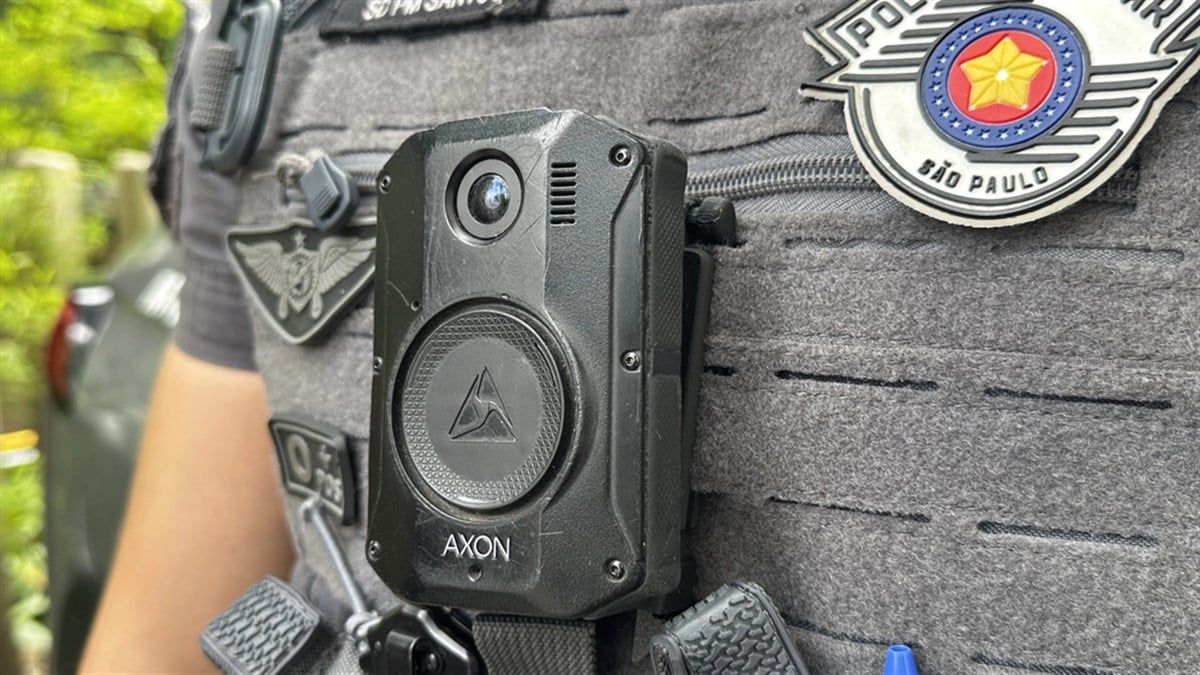
Axon Enterprise (NASDAQ: AXON) has been one of the hottest names in security and defense. However, competition is heating up. Motorola Solutions (NYSE: MSI), a major competitor of the bodycam maker, announced an acquisition on May 27. This move could create future challenges for Axon as it looks to continue expanding.
Motorola is acquiring Silvus Technologies in a deal worth $4.4 billion. Silvus develops Mission-Critical Mobile Ad-hoc Network (MANET) technology that aids military and law enforcement agencies. Although Axon does not directly compete in MANET technology at this point, the company is well known for expanding into new areas. This is one of the key factors that have allowed Axon’s business to over double its revenues from 2021 to 2024. Axon shares skyrocketed over the past year. This acquisition could make it more difficult for Axon to expand into new use cases. Motorola expects the acquisition to close in the second half of 2025.
Motorola’s Evolution: From Cell Phones to Public Safety
[content-module:CompanyOverview|NYSE: MSI]Despite many knowing Motorola for its involvement in early cell phone technology, the company split its business back in 2011. Thus, Motorola Solutions no longer competes in the cell phone industry. Most of its business now serves public safety customers, who account for approximately 70% of the company’s total revenue. Like Axon, the company makes body cameras for law enforcement, as well as AI-powered analytics technology.
These fall under its Video Security & Access Control segment, which generated $1.9 billion in revenue in 2024. This is just below Axon’s nearly $2.1 billion in total revenue for 2024. This highlights the fact that Motorola is not only an Axon competitor, but a very large one. The size of the transaction indicates that Motorola is buying a highly established player in the MANET space.
Silvus Technology Adds Key New Capabilities and Verticals to Motorola
MANET technology enables users to set up high-speed communication networks where traditional infrastructure, like cell towers or Wi-Fi, is missing or unreliable. For example, on a battlefield in a rural area, dispersed soldiers can use the technology to communicate. Like highly advanced walkie-talkies, the signals sent over Silvus’s networks are resilient against jamming and detection. They can also transmit high-definition video. This is one of the main reasons for the acquisition. Motorola’s Chief Executive Officer (CEO), Greg Brown, says the acquisition adds “new capabilities such as high-bandwidth secure mobile data and video that complement our existing expertise in mission-critical voice."
These features are particularly useful when using drones in hostile environments. They allow the drones to communicate with each other and personnel, even without a direct line of sight. Another key reason for the purchase is that the acquisition gives the company exposure to the drone and autonomous systems space. Firefighters battling wildfires can also use this. It allows them to get video and mapping data from aerial assets while they are on the ground.
Axon May Be Forced to Start Fighting on a New Front to Achieve Growth Ambitions
[content-module:Forecast|NASDAQ: AXON]Building on an earlier point, Axon competes with Motorola in several key areas. The company’s Axon Respond technology allows for live video streaming through the company’s body cameras. These capabilities extend to third-party drones through its Axon Air product line. However, these capabilities require LTE or Wi-Fi connectivity. Communication can't happen without fixed infrastructure, which gives Motorola a significant edge. This could position Motorola’s products as more useful to certain customer groups. This is especially true for agencies working in foreign areas with poor communications infrastructure during military operations.
However, there may not be a large immediate impact on Axon’s business. This is because the company primarily serves U.S. state and local agencies, which are more likely to have access to fixed infrastructure in their communications. Motorola’s new tech may not move the needle much for them. In the company’s 2023 annual report, Axon stated, “Our largest customer segment is U.S. state and local law enforcement." In 2022, Axon said it had customer relationships with 95% of these agencies.
Statements made at TD Cowen’s 53rd Annual Technology Conference on May 28 also support this idea. The company referred to its federal business as "smaller," and an analyst referenced its international business as a “newer market." Overall, the Motorola acquisition might not impact Axon much now, but it could limit the company's growth prospects in the $129 billion total addressable market it envisions. That is, unless Axon continues to innovate or makes an acquisition of its own.
Where Should You Invest $1,000 Right Now?
Before you make your next trade, you'll want to hear this.
MarketBeat keeps track of Wall Street's top-rated and best performing research analysts and the stocks they recommend to their clients on a daily basis.
Our team has identified the five stocks that top analysts are quietly whispering to their clients to buy now before the broader market catches on... and none of the big name stocks were on the list.
They believe these five stocks are the five best companies for investors to buy now...





